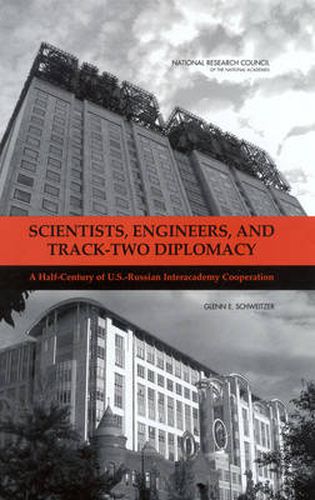Readings Newsletter
Become a Readings Member to make your shopping experience even easier.
Sign in or sign up for free!
You’re not far away from qualifying for FREE standard shipping within Australia
You’ve qualified for FREE standard shipping within Australia
The cart is loading…






This report is intended to provide a brief historical perspective of the evolution of the interacademy program during the past half-century, recognizing that many legacies of the Soviet era continue to influence government approaches in Moscow and Washington and to shape the attitudes of researchers toward bilateral cooperation in both countries (of special interest is the changing character of the program during the age of perestroika (restructuring) in the late 1980s in the Soviet Union); to describe in some detail the significant interacademy activities from late 1991, when the Soviet Union fragmented, to mid-2003; and to set forth lessons learned about the benefits and limitations of interacademy cooperation and to highlight approaches that have been successful in overcoming difficulties of implementation.
$9.00 standard shipping within Australia
FREE standard shipping within Australia for orders over $100.00
Express & International shipping calculated at checkout
This report is intended to provide a brief historical perspective of the evolution of the interacademy program during the past half-century, recognizing that many legacies of the Soviet era continue to influence government approaches in Moscow and Washington and to shape the attitudes of researchers toward bilateral cooperation in both countries (of special interest is the changing character of the program during the age of perestroika (restructuring) in the late 1980s in the Soviet Union); to describe in some detail the significant interacademy activities from late 1991, when the Soviet Union fragmented, to mid-2003; and to set forth lessons learned about the benefits and limitations of interacademy cooperation and to highlight approaches that have been successful in overcoming difficulties of implementation.